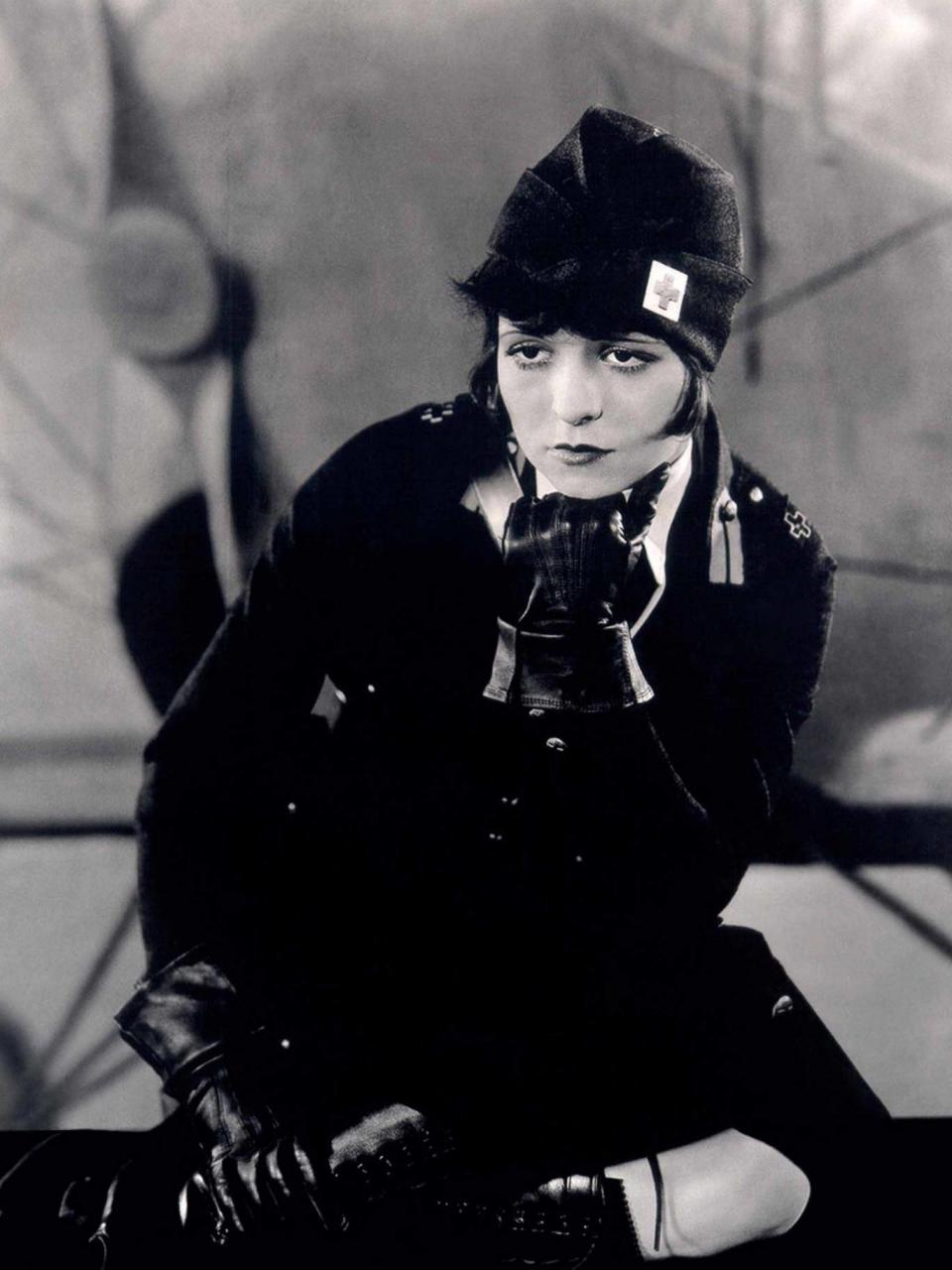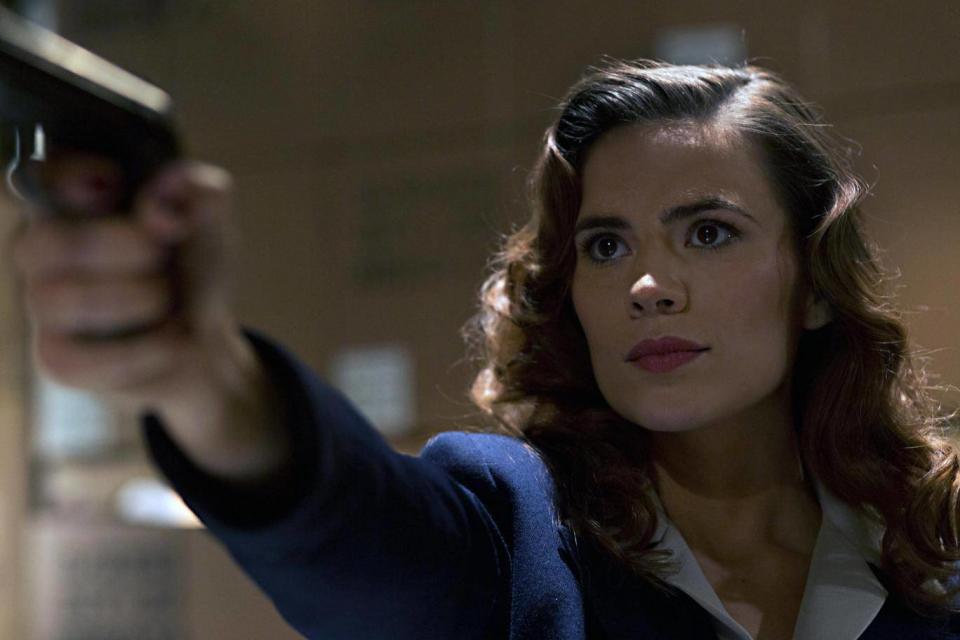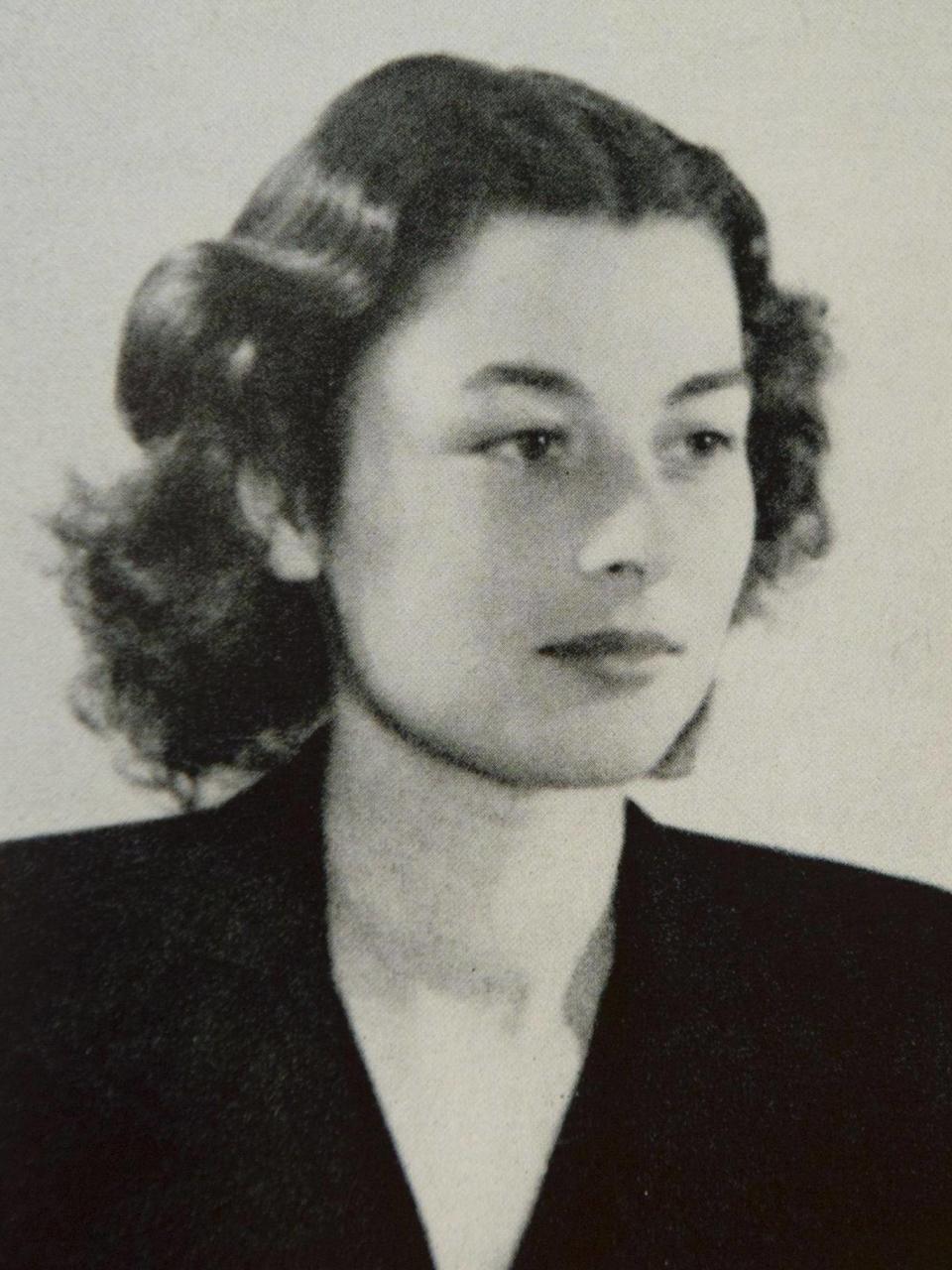Christopher Robin interview: Hayley Atwell on redefining the image of women at war
The image of the loyal woman, holding down the homestead as war rages across the sea, stands pensively in her backyard, pinning up her muted, utilitarian dresses up to dry. She looks up, to see a pair of spitfires roar overhead - will her man ever come home?
It’s an image cinema has trained us well to view as the defining experience of women at war: of the virtuous waiting patiently at home for their sons and husbands to return, ready to accept the roles of dignified widows if that dreaded telegram turns up at their door.
One which was swiftly established during the war itself: in films such as John Cromwell’s Since You Went Away (1944), which starred Claudette Colbert as a saintly housewife prepared to make every sacrifice at home: rationing food, growing victory gardens, and (aghast) giving up the services of her maid.
Or the women of Mrs. Miniver (1942), directed by William Wyler, who sit at home, nobly accepting the idea their husbands and sons may never come home - though, through an ironic twist, it’s a woman who is killed here. As also occurs in Roberto Rossellini’s 1945 film Rome, Open City, with these deaths of virtuous women coming to represent the ultimate loss of innocence.
Indeed, women in wartime narratives were overwhelmingly represented as passive actors: even a star as powerful as Clara Bow wasn’t granted the role of hero when she starred in William A. Wellman’s Wings (1927), thrown to the sidelines as the love interest to two rival pilots.
She later bitterly declared of the film: “Wings is … a man’s picture and I’m just the whipped cream on top of the pie”. And what of the countless women who, from 1941, entered the workforce, becoming mechanics, munitions workers, pilots, spies, and engineers?
Their narratives are rare outside of straight propaganda films, which experienced a WWII boom, and were made largely to encourage women to participate in the war effort, since they were now the majority of cinemagoers.
These films were hardly a celebration of heroics, but kept the emphasis strictly on painting women as enthusiastic cogs in the great machine, such as in Millions Like Us (1943), which tucked those messages under a neat love story. Or The Gentle Sex (1943), which encouraged women to join the Auxiliary Territorial Service, but relied on broad tropes and patronising narration from director Leslie Howard.

Hollywood has done little to rectify those narratives since then, still largely reliant is cinema on images of women waiting for their heroes to return, as in Hacksaw Ridge (2016), women as objects of desire, as in Pearl Harbour (2001), or - at a stretch - women as a litter of background nurses, as spotted in Dunkirk (2017).
But this, simply, doesn’t reflect the real breadth of women’s experiences during both the First and Second World War. By mid-1943, almost 90% of single women and 80% of married women in Britain were working in factories, on the land, or in the armed forces. Over 640,000 women served in the armed forces.
In the US, an estimated 7 million joined the workforce during WWII; those who served in the Women’s Army Corps proved so efficient, they were nicknamed “Eisenhower’s secret weapon”. More than 800,000 women served in the Soviet army, half of them in front-line duty, many as snipers and pilots.
Thankfully, there are those out there who want to see those experiences up on screen. One such individual is Hayley Atwell who, in her latest film, Disney’s Christopher Robin, helps to quietly redress the assumptions of women’s roles during the wartime.
While the film may, as its title determines, focus on a now-grown Christopher Robin (Ewan McGregor) reconnecting with his childhood sense of wonder, thanks to the aid of Pooh and his friends, his own experiences of WWII are contrasted against those of his wife Evelyn, played by Atwell, who forged her own career in schematics, designing fighter planes - hardly waiting quietly at home for her husband’s return.
“It’s one of the things that I think was essential for wanting to play her,” Atwell says of her character. “Of going, this can’t just be a passive woman who’s a victim here. Who loses her husband and he comes back a changed man. And she has to endure this difficult change in her life."
"And so, that to me was, I think, a wonderful representation of women who were joining the workforce during the war and were able to have careers and opportunities that came about as a result of the men not being around. I think that’s also a saving grace for her, it’s what keeps her going, it’s why she’s able to provide for her young daughter by herself.”
Atwell, of course, is also best-known for one of the most popularised modern images of a wartime woman: Agent Peggy Carter. A British Air Force officer who, as part of the Strategic Scientific Reserve (SSR), worked to undermine HYDRA, the Nazi weapon division, operating a successful rescue mission to save Professor Abraham Erskine, which in turn allowed for the creation of the Super Soldier Serum which transforms Steve Rogers into Captain America.
And, thanks to the ABC series Agent Carter, Peggy’s narrative gained further agency, delving into a post-war climate in which women’s contributions were swiftly forgotten, expected were they to swiftly return to their previous domestic duties.

And, without the constant output of propaganda, images of women in the workforce also quickly dissipated from film, giving way to an even greater emphasis on the traditional notion of the nuclear family, as men returned home in expectation the status quo would immediately return.
That tension was very subtly alluded to in Christopher Robin’s original script, Atwell reveals, when Evelyn continues on in employment as an architect, contributing to the rebuilding of London after the war, only for Christopher to dismiss her work as a “hobby”.
It came down to a small selection of films to uphold the legacy of women’s wartime contributions. Another role of Atwell’s, for example, saw her star as a nurse working alongside Alicia Vikander’s Vera Brittain in Testament of Youth (2015); adapting Brittain’s own memoirs, in which she detailed how her own struggles to fight patriarchal assumptions and attend Oxford University, in order to pursue a literary career, only to abandon her plans and join the Voluntary Aid Detachment to tend to the wounded.
In Lone Scherfig’s Their Finest (2016), Gemma Arterton’s Catrin Cole acts as an illustration of the roles women played in the Ministry of Information, helping produce propaganda for the British government. Keira Knightley helped illuminate the work of the female codebreakers at Bletchley Park, like Joan Clarke, in The Imitation Game (2014).
There are rare older films, too, that stand out: the first two women ever to receive the George Cross have both had their lives adapted onto film. Odette (1950) focuses on Special Operations Executive French-born agent Odette Sansom, who was captured by the Germans and sent to Ravensbrück concentration camp to be executed, only to survive and testify against her guards after the war.
Carve Her Name with Pride (1958) centred on the life of Violette Szabo, a Special Operations Executive sent to the same concentration camp, but who had her life brutally ended there.

But these films still feel unique in the cinematic landscape, with so many stories of bravery left untold: like that of Virginia Hall, who the Gestapo reportedly considered "the most dangerous of all Allied spies”; or Faye Schulman, the only partisan photographer to capture the Jewish resistance; or Harriet Ida Pickens and Frances Wills, the first African-American female officers in the United States Naval Reserve, with the stories of women of colour in this period even more obscured.
For Atwell, it’s the story of women like Mary Ellis, who died last month at age 101. As she explains: “Ewan [McGregor] was telling me this story when he did a documentary recently about fighter pilots - his brother was a former RAF pilot - that he interviewed a group of women who were pilots. And they weren’t fighting, but they were trained to deliver planes to various parts of the country."
"Sometimes they’d have only basic training and they’d be given a manual and would get into various planes that they’d never been in before, with this manual, and be, like, OK, off I go! I’ve got to deliver this plane somewhere else."
"And the personality of these women, how adventurous they were, but also their ability to get into a plane they’d never flown before and adapt and deliver it and do what needs to be done - I thought that would make a fantastic film.”
“I think what I’ve learnt from playing [those] characters, and from research, is that women are still underrepresented, in our stories of times in history where we were there, we were present, we were making changes, we were contributing in different ways; rather than just being housemakers, we were lots of other things,” Atwell concludes.
“It felt like more of a drive for me to want to represent women like this. I find it bizarre when people go, oh, you’ve played a strong woman. As if that’s rare. When in fact, I only know strong women. The strength in them manifests in different ways. They may have a gentle exterior with it, but there’s still a strength in them that I hope will continue to be better represented across the board.”
Christopher Robin hits UK cinemas 17 August.

 Yahoo Movies
Yahoo Movies 
